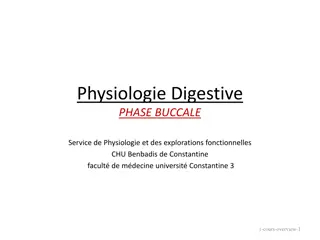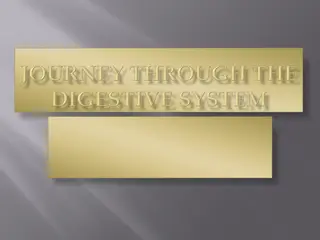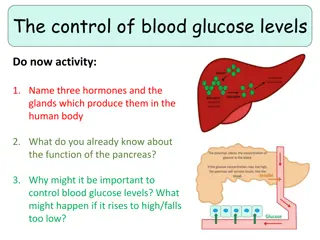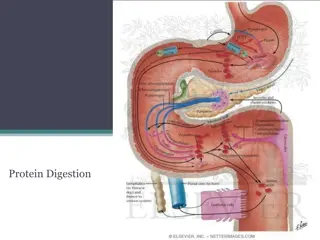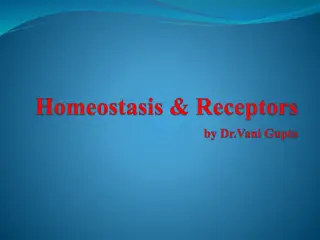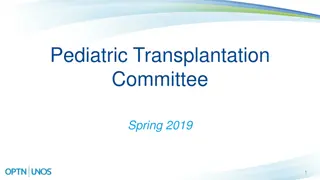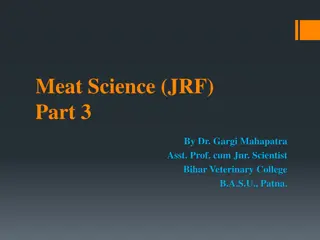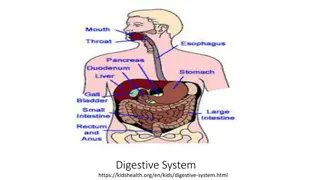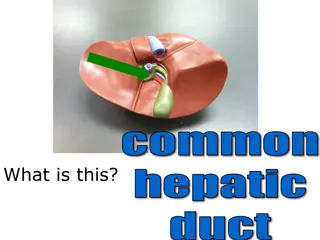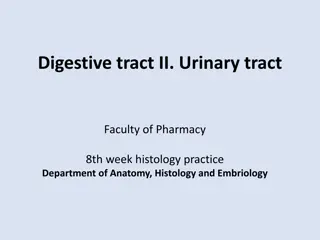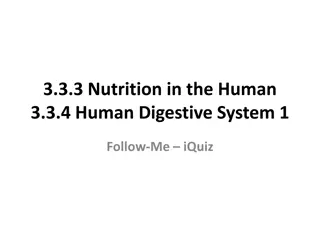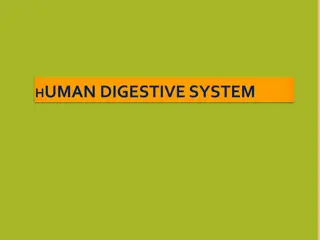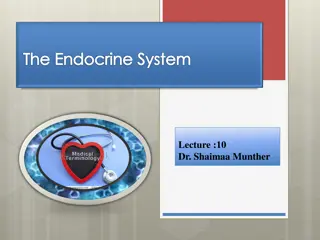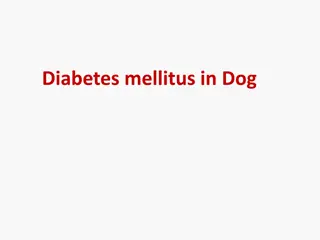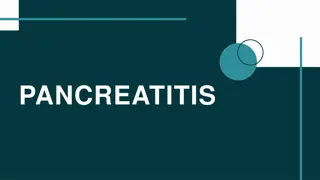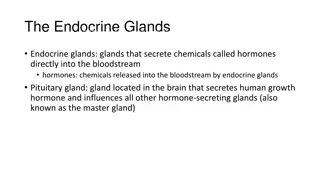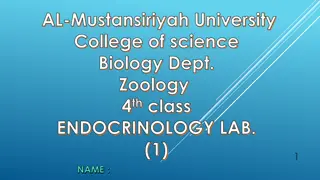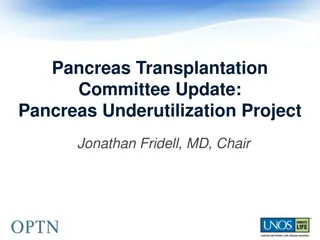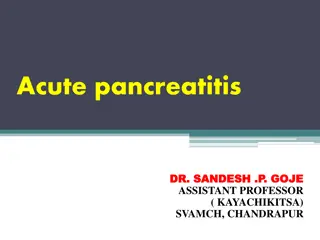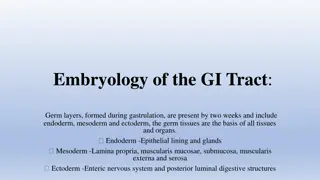Specialist Pancreatic MDT and Role in Cancer Care
Today's education event focuses on the role of a specialist pancreatic MDT led by Phil Whelan, a Macmillan Pancreatic Nurse Consultant. The session covers the Liverpool Pancreas Unit, the importance of treatment at specialist units, MDT operations, and the roles within the team. The evolution of pan
0 views • 23 slides
Physiologie Digestive PHASE BUCCALE
Digestive physiology involves the breakdown of food into simple nutrients for absorption by the body. It includes mechanical and chemical means of food degradation using enzymes from salivary, gastric, pancreatic, and colonic bacteria. The digestive system comprises the mouth, esophagus, stomach, li
4 views • 25 slides
Scandiatransplant Activities and Awards in 2023
Scandiatransplant is the organ exchange organization serving Denmark, Finland, Iceland, Norway, Sweden, and Estonia. They facilitate kidney, liver, thoracic, pancreas, and islet transplantations. The organization aims to maintain transparency and ethical practices while operating a common waiting li
2 views • 45 slides
Comprehensive Overview of Pancreas Function and Structure
Pancreas is a vital organ in the abdomen with dual exocrine and endocrine functions. As an exocrine organ, it secretes digestive enzymes and bicarbonates into the duodenum for food breakdown. In its endocrine role, the pancreas regulates blood sugar levels by secreting insulin, glucagon, somatostati
1 views • 16 slides
The Digestive Journey: From Skittles in the Mouth to Nutrient Absorption in the Intestine
The process begins with chewing skittles in the mouth, where salivary amylase breaks down sugar. The bolus then travels down the esophagus via peristalsis into the stomach, further broken down by gastric juice. The pancreas releases enzymes like amylase and lipase to digest sugars and fats. Bile pro
1 views • 15 slides
Understanding Diabetes: Types, Causes, and Prevention
Diabetes is a disease that affects how the body uses glucose, the main source of fuel. There are two main types of diabetes – Type 1 and Type 2. In Type 1 diabetes, the pancreas fails to produce insulin, while in Type 2, the body's cells do not respond properly to insulin. Uncontrolled diabetes ca
1 views • 14 slides
Understanding Blood Glucose Control Mechanisms in the Human Body
This content explores the regulation of blood glucose levels in the human body, covering the role of hormones like insulin and glucagon produced by the pancreas. It discusses the importance of maintaining proper blood glucose levels and the consequences of levels being too high or too low. The text
0 views • 19 slides
Understanding Protein Digestion and Amino Acid Metabolism
The process of protein digestion involves proteolytic enzymes produced by the stomach, pancreas, and small intestine. Pepsinogen is activated to pepsin in the stomach, breaking down proteins into oligopeptides and amino acids. After absorption, amino acids are utilized for protein synthesis and as d
0 views • 7 slides
Understanding Homeostasis in Organisms
Homeostasis is the key to maintaining internal stability in living organisms, ensuring they return to a stable state after fluctuations. This involves various body parts such as the kidneys, skin, liver, and pancreas. Different systems like body temperature regulation, blood pressure control, and os
1 views • 51 slides
Understanding Invariance in Posterior Distributions
Exploring the insensitivity of posterior distributions to variations in prior distributions using a Poisson model applied to pancreas data. The analysis involves calculating posterior mean and standard deviation with different Gamma prior distributions. Results showcase minimal change in outcomes ac
0 views • 7 slides
Pioneering Pediatric Transplantation Initiatives
In the realm of pediatric transplantation, recent projects and upcoming bylaw implementations are focused on enhancing care transition, establishing key personnel requirements, and implementing vital components for kidney, liver, heart, lung, and pancreas transplants. The initiatives aim to improve
0 views • 9 slides
Utilization of Glands and Biochemicals in Meat Science Research
Glands play a crucial role in meat science research, with various organs such as pancreas, adrenal glands, and parathyroid gland providing valuable biochemicals like insulin, thyroxine, and corticosteroids. The extraction methods and applications of these glands in food science and medicine are deta
0 views • 25 slides
Exploring the Intricacies of the Digestive System
The digestive system plays a crucial role in converting food into nutrients and eliminating waste from the body. It involves a complex network of organs such as the mouth, stomach, intestines, liver, pancreas, and gallbladder. Discover interesting facts and details about the digestive system, includ
0 views • 18 slides
Identify Various Organs and Regions in Medical Images
The provided content consists of images showing different organs and regions in the human body, such as the liver, pancreas, gallbladder, esophagus, appendix, and more. These images aim to help individuals understand and recognize these structures for educational or medical purposes.
0 views • 53 slides
Histology Overview of Digestive and Urinary Tracts in Pharmacy Practice
This histology practice session delves into the intricate details of the digestive and urinary tracts studied in the 8th week of Pharmacy school. Explore images showcasing the structures of the colon, vermiform appendix, liver, pancreas, and nephron. Gain insights into the histological features of t
0 views • 19 slides
Understanding Cystic Fibrosis: Causes, Symptoms, and Treatment Options
Cystic Fibrosis (CF) is a genetic condition affecting around 11,000 people in the UK. It disrupts salt and water movement in cells, leading to thicker, stickier mucus in the body. This condition can affect the lungs, digestive system, and pancreas, with symptoms such as chronic cough, digestive issu
0 views • 23 slides
Understanding Nutrition and the Human Digestive System
This quiz tests your knowledge on nutrition in the human body and the digestive system. It covers topics such as omnivores, absorption processes, enzymes, and the functions of various organs like the pancreas and intestines. Explore these concepts to enhance your understanding of how food is process
0 views • 50 slides
Understanding Pancreatic Cancer: Facts, Tumors, and Risk Factors
Pancreatic cancer, a deadly disease, is on the rise with specific risk factors like age, genetics, and lifestyle choices. Exocrine and endocrine tumors differ in presentation and treatment. Learn about the pancreas's location, statistics, and crucial risk factors associated with this malignancy.
0 views • 19 slides
Exploring the Human Digestive System: Major Organs and Functions
The human digestive system is a complex network of organs working together to break down food into smaller molecules for absorption. It consists of major organs like the mouth, esophagus, stomach, small intestine, and large intestine, along with accessory organs such as the liver, gallbladder, and p
0 views • 34 slides
Understanding Type 1 Diabetes: Causes, Symptoms, and Treatment
Type 1 diabetes is a condition where the pancreas fails to produce insulin, leading to high blood sugar levels. Without insulin, the body cannot use sugar for energy, resulting in various symptoms like hunger and fat burning. This article provides an overview of diabetes, how insulin works, and the
0 views • 13 slides
Understanding the Endocrine System: Key Concepts and Functions
The endocrine system, consisting of glands that release hormones into the bloodstream, plays a crucial role in regulating various body processes like metabolism, growth, reproduction, and stress response. Key glands include the pituitary, thyroid, pancreas, adrenal, ovaries, and testes, each produci
0 views • 34 slides
Understanding Canine Diabetes Mellitus: Causes, Symptoms, and Treatment
Canine diabetes mellitus is a common disease in dogs, primarily affecting middle-aged and older dogs. Unlike Type 2 diabetes in humans, dogs mainly experience insulin-dependent Type 1 diabetes. The condition results from beta cell dysfunction in the pancreas, leading to insulin deficiency. Causes in
0 views • 32 slides
Understanding Pancreatitis: Symptoms, Causes, Treatment & Diet
Pancreatitis is inflammation of the pancreas that can be acute or chronic. Symptoms include fever, abdominal pain, nausea, and vomiting. Causes range from alcohol consumption to gallstones. Treatment involves managing symptoms with medication, surgery, or dietary changes. Following a specific diet p
0 views • 7 slides
Understanding How Hormones Interact: The Endocrine System
The endocrine system comprises glands that release hormones into the bloodstream, influencing various bodily functions. Key glands include the pituitary, pineal, thyroid, pancreas, gonads, and adrenal glands, each playing a crucial role in regulating metabolism, growth, stress response, and reproduc
0 views • 5 slides
Understanding the Endocrine System: Hormones, Glands, and Regulation
The endocrine system, comprising glands such as the pituitary, thyroid, pancreas, and more, produces hormones that regulate various bodily functions. These hormones target specific cells with receptors, influencing metabolism, growth, energy usage, and more. By understanding how hormones interact wi
0 views • 12 slides
Understanding the Endocrine System: Glands and Hormones in Detail
Explore the intricate details of the endocrine system, focusing on key glands like the thyroid, parathyroid, adrenal, pancreas, and thymus, their functions, hormone secretion, and role in maintaining physiological balance through hormonal regulation mechanisms.
0 views • 13 slides
Pancreas Transplantation Committee Update: Addressing Underutilization
The Pancreas Transplantation Committee, led by Dr. Jonathan Fridell, aims to increase the number of transplants by investigating reasons for the reduction in pancreas transplants. They have made updates to the facilitated pancreas allocation policy and process, analyzing longitudinal trends from 200
1 views • 11 slides
Understanding Acute Pancreatitis: Causes, Symptoms, and Treatment
Acute pancreatitis is a sudden inflammation of the pancreas, often caused by factors like gallstones or heavy alcohol use. This medical emergency presents with severe epigastric pain, nausea, and vomiting. Learn about its causes, pathogenesis, types, and clinical features to better understand this c
0 views • 24 slides
Embryology of the GI Tract and Development of the Gut Tube
Embryology of the gastrointestinal (GI) tract involves the formation of germ layers during gastrulation, leading to the development of endoderm, mesoderm, and ectoderm. By incorporating the yolk sac, the primitive gut tube emerges during weeks 3-4 and is divided into foregut, midgut, and hindgut, gi
1 views • 25 slides
Understanding Cholecystectomy and Biliary System Anatomy
Explore the surgical procedure of cholecystectomy, involving the complete removal of the gallbladder, and learn about the anatomy and function of the biliary system. Discover common pathologies like cholecystitis and cholelithiasis, as well as the types of gallstones. Visual aids and detailed explan
0 views • 28 slides

